This second instalment of #FacesofFilmAsia saw us speaking to a photographer, a director, the executive director of the Asian Film Archive and two programme executives from the SGIFF 2020 team. If film is your thing, some of these stories and insights will resonate.
Interview responses have been lightly edited for clarity.
Photographer & Videographer
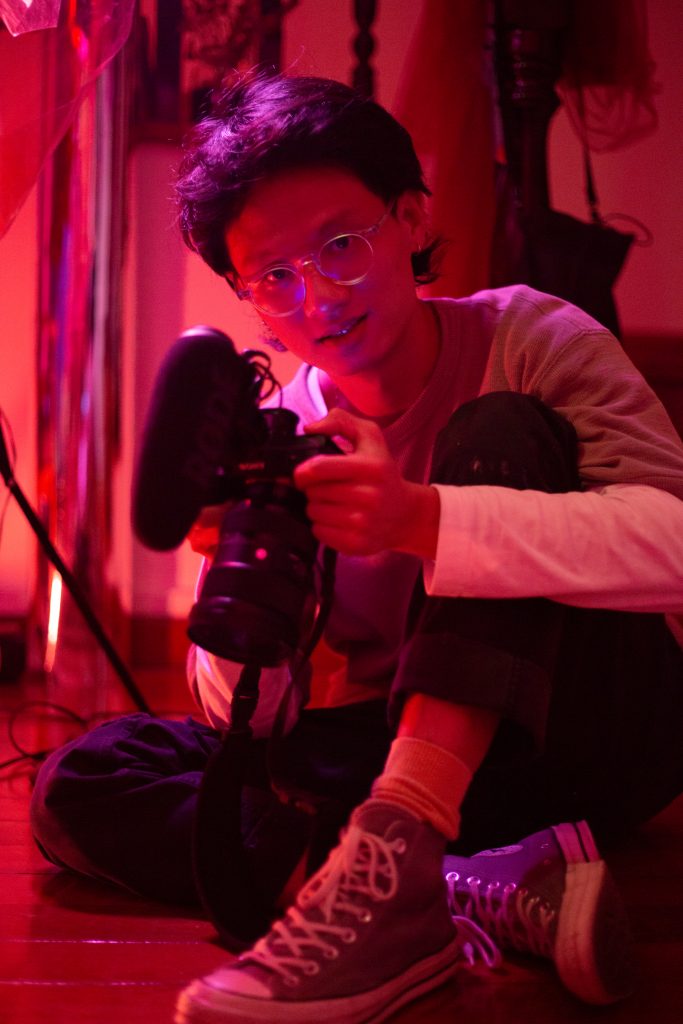
I was lucky to be part of SGIFF’s Youth Jury programme in 2015, back when I was still in school and getting exposed to films beyond Pulp Fiction/ Eternal Sunshine (Of The Spotless Mind). I think that was when I began to think about, or get a sense of, how “Southeast Asian” films were like, as we were supposed to give out the Youth Jury award to the best Southeast Asian short entry that year. Some of the films at the time left me frustrated, at times, for how obtuse they could be (there’s a still shot in one of the films, where two people just sit on the floor of their living room looking at each other for an excruciating ten minutes), but also intrigued at how different they were from the films we were used to seeing. They could be wildly experimental, providing no rungs at all for the viewer to hold on to, but in the smallest moments, they could also be disarmingly heartwarming. So yes I think films from this region are quite underrated because there aren’t accessible entry points or an easy way to approach them. Apitchatpong’s films are a good start for anyone curious.
What is one Singaporean/Southeast Asian film you think everyone should watch?
It’s not exactly underrated, but I do think that although a lot of people have heard of the film ILO ILO, many still haven’t watched it. And they should! It’s one of those rare films made here that’s accessible to a larger audience, yet still has a ton of artistic merit. To me, the film is made in a sort of “invisible style”, in the sense that there are no flashy camera moves or elaborate set design – the relationship between a young boy and his maid takes centre stage, and it’s just beautifully and simply conveyed.
I enjoy the films of Malaysian filmmaker Tan Chui Mui as well. Especially one of her earlier shorts, “A Tree in Tanjung Malim”, which can be found easily online. It barely contains traces of a “story”, yet watching the young girl and the older man listlessly strolling about in what seems like a small, forgotten town, singing songs and carelessly discussing “Middlemarch”, inspires much feeling.

Invite them to film screenings! Smaller, more “indie” screenings shouldn’t only be attended by a small circle of film industry people. What I do is think about which of my friends would enjoy a particular screening based on its story or themes, and ask them along to watch the film with me. Many times the films turn out to both appeal to their interests and widen their scope of what films can be or do.
Also, Netflix now has a whole slate of very good Singaporean films, from Meepok Man and 12 Storeys to Money No Enough. Go watch!
As a Singaporean, how has your love for film changed your life?
I’d say it’s quite literally changed my life. I remember my first deep-dive into films as a 19-year-old army boy. I would spend entire night shifts alone at the pass office devouring cult classic after cult classic, drifting off to The Pixies’ Where is My Mind as Edward Norton and Helena Bonham Carter watch the world burn. My course was set for communications school after, but instead of studying journalism, which was my plan before, I decided to major in Broadcast and Cinema Studies and now here I am, running about with a camera and pretending to know what I’m doing!

I’m surrounded by people who are arguably more obsessed with film than I am, so… time to step up my game!
Executive Director, Asian Film Archive

It is subjectively difficult to pinpoint a title, so I have chosen to share a film that evokes a deeply personal memory for me—Miss Wonton by Meng Ong. The film was made in 2001 about a young Chinese female immigrant arriving in New York City trying to survive while discovering her dreams.
2001 was coincidentally when I moved and started living in New York City. Seeing in this film, the sights and sounds of NYC and its larger than life famous landmarks, eclipsed with the experience of having lived through 9/11, makes the film resonate for me. More importantly, it illustrates the power of film in connecting people to a particular place and moment in time.
I encountered Malaysian films through the works of the filmmakers from the collective Da Huang Pictures. I enjoyed many of their stories told in such a simple yet touching manner. Liew Seng Tat’s quietly moving Flower in the Pocket is one such prime example.
Are Singaporean/Southeast Asian films underrated? Why?
More audiences are beginning to recognise the interesting manner that Southeast Asian stories are being told. Topical issues that matter to us and where we live are being discussed, represented, and reframed in ways that are relevant for Southeast Asians and beyond.
There are invariably still some ingrained notions that Western and our more established East Asian film counterparts, for instance, are superior in their intrinsic production value and content. However, Southeast Asian filmmakers are making themselves seen and heard through their unique vision and voice.
With the many more spaces and programmes that now offer audiences with a selection of Southeast Asian films to watch, including AFA’s regular Asian films focused programming, there is a gradual but increasing appreciation of the films coming out of the region.
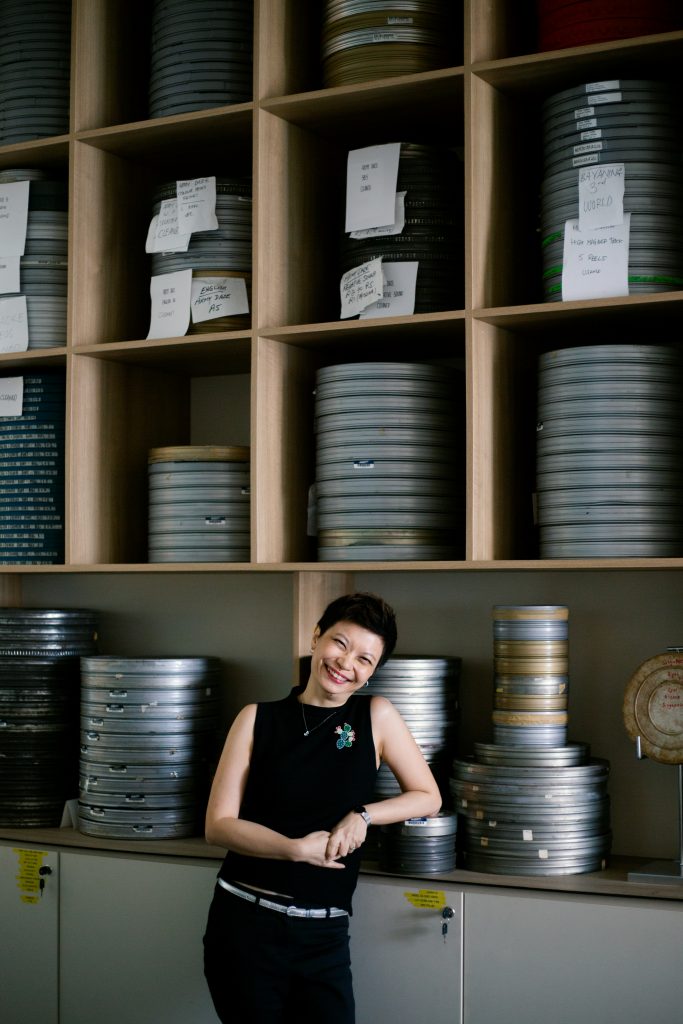
I would encourage Singaporeans to start with films that they feel they can relate to. It does not have to be a highly acclaimed or award-winning film. Chances are when they invest some time to watch a Singaporean or Southeast Asian film, there would be a sense of familiarity and an unspoken connection to the characters. As we watch and become more exposed to Asian films, we will embrace and start to enjoy them more. It is all about opening the mind to giving Southeast Asian films a chance.
As a Singaporean, how has your love for film changed your life?
Over the years, I have seen how film has deeply impacted so many people. The memories we hear grandparents tell their grandkids when we run a film that has not been seen for years, or when audiences weep, sing the soundtrack, or recite lines from their favourite character, it all warms the heart. It makes one understand why this art form has lasted for over 120 years and it humbles me that the films we are saving at the AFA will enable new generations of audiences a chance to see these cinematic treasures.

My sons often say, “We can feel a film analogy coming.” They joke about it, but I think my friends and family understand I take my job seriously and that preserving films is not just for the sake of them having provided great entertainment. I am very grateful for their support or I would not have been able to work in the archive for so long.
Director

I rather not pinpoint just one film since I think that in general, people just need to start watching more SG cinema, pick what sounds appealing to you rather than what you are told is important to watch. Whether you go with Ilo Ilo, Apprentice, Shirkers, Pop Aye or whatever, pick one with a premise that you find compelling, and enjoy! It’s not different than browsing your Netflix and choosing something that sounds like a ride.
Are Singaporean/Southeast Asian films underrated? Why?
Yes and no! It depends on who you’re speaking to! For those in the know, they might say some of it is overrated but for the majority of movie-goers, then Singaporean/SEA films are underrated. There just needs to be more exposure so we don’t become intellectually lazy.
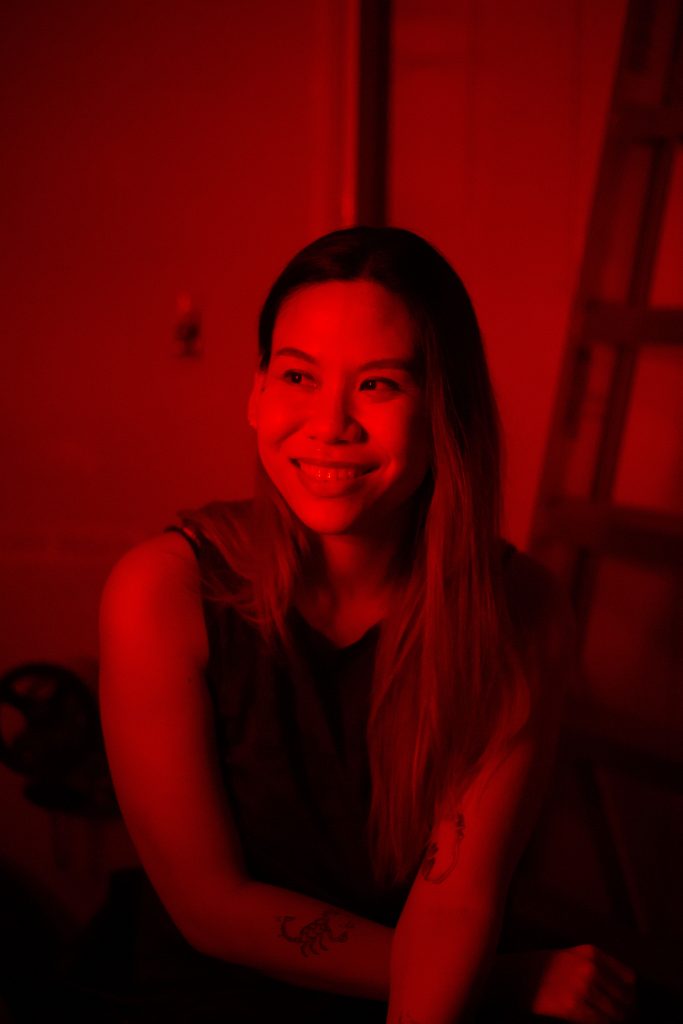
I think treating them like any other film recommendation is key. I wouldn’t “convince” anyone to go watch something. I would just tell them, “Look, this is dope, go chekkit”.
As a Singaporean, how has your love for film changed your life?
My love for film = making films. Making films = a twisted masochistic journey of love and hate with the process. So I’d say it changed my life by torturing me into making things I find value in.
What do your friends and family think of your love of (or obsession with) film? How does that make you feel?
I think they think I’m overworked, haha. I feel alright about it I guess. I do think that this obsession with productivity is capitalism taking hold of our lives and squeezing us dry. But it’s filmmaking so that makes it okay? Don’t quote me on that.
Programme Executive, SGIFF 2020

There’s this 2017 Singaporean anthology of five short films in Chinese dialects called 667 which I’ve been very fascinated with—but it has sort of flown quite under the radar. It features works by Eva Tang, He Shuming, Jun Chong, Kirsten Tan and Liao Jiekai. I was so taken by the anthology that I ended up writing a final paper on it in a film theory class while I was an undergraduate in the US, and also gave a class presentation on the film to my American professors and peers. As part of the course, we studied the politics of dubbing, subtitling and translation in cinema, and I thought this anthology was a rich, fertile text to explore.
I was very interested in the ways the short films captured how the loss of dialects produced other dislocations in terms of intergenerational relationships, cultural identities and historical consciousness. In many ways, the struggle to speak a dialect is often also a struggle to connect with a loved one.
One question the anthology did leave me with though—and this is very important to me—is how we use “dialect” as a term in Singapore to refer rather exclusively to Chinese dialects, without considering the linguistic diversity of other language families. For example, what would an anthology investigating “Malay dialects” look like? What sort of issues, characters and histories would be explored?
Are Singaporean/Southeast Asian films underrated? Why?
Yes and no. Perhaps the question is “What kinds of Singaporean and Southeast Asian films are underrated? Is Ah Boys to Men underrated? Is I Not Stupid underrated? And underrated—to whom? When we perceive something as “underrated”, what we are feeling is some injustice to the film in terms of its unrecognised value. So yes, for the most part, I do feel that many local and regional independent films are underrated because their value has not been widely recognised.
In that case, what can we do? We have to fervently advocate for and demonstrate their value. And no one will do that for us unless we champion these films ourselves. That’s where the film festival comes in, as one little part of the larger film ecosystem, to uncover and recognise that value in different ways. For example, we curate a lineup of films every year, from a massive ocean of works, and sort of say, hey, this is what we feel you should come and watch. We also have two competitive sections—the Asian Feature Film Competition and the Southeast Asian Short Film Competition—where we try very hard to push exciting, new voices into public awareness.
Besides, we run a Youth Jury and Critics Programme (which I was part of back in 2015!) to get more young local writers to watch these films and publish their analyses and interpretations of these works. The act of writing, through the ages, is an ancient way to immortalise and record value for something: writing on cave walls, stories on papyrus, articles in print newspapers. We hope that the festival’s programmes altogether in some way can be that writing left on the cave walls for many, many local and regional works and creators—that their full value may be recognised in the years to come.
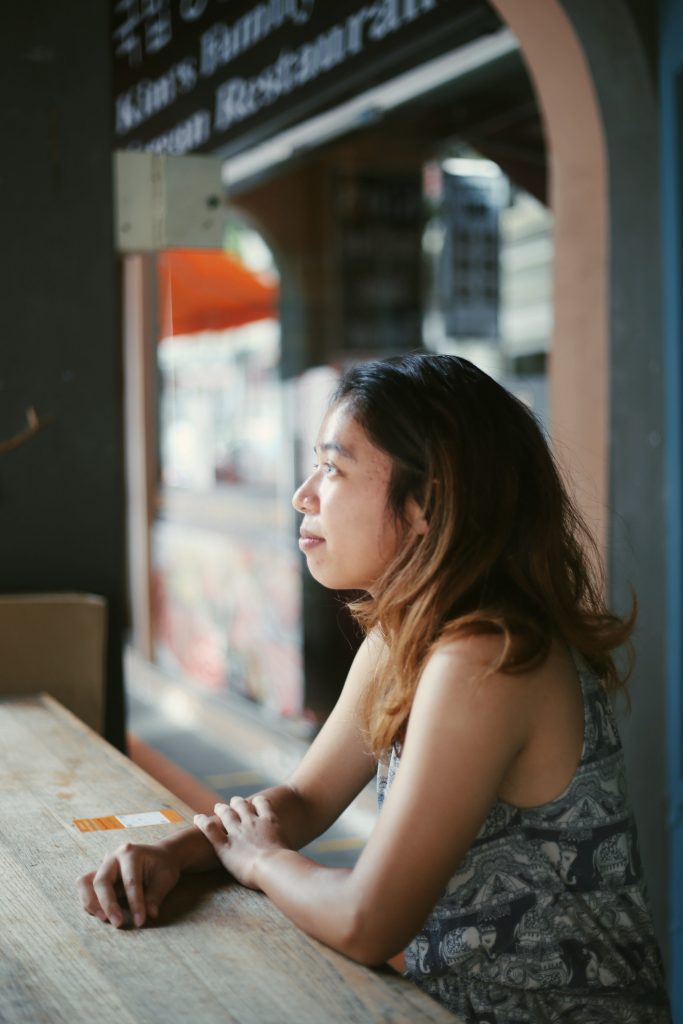
Short of yelling “please watch this, thanks” to every Singaporean, I think ultimately we have to collectively believe that championing works made at home and this region is important. We have to believe that this is the hill we will (metaphorically) fight for and die on.
And to “watch more” or to “support” doesn’t mean a blind adulation of anything made by Singaporean or regional filmmakers. It means that yes, we watch as much as we can—and then vigorously unpack, praise, rebuke, tear apart, challenge, debate the films. There needs to be healthy, vibrant discourse because that’s what lots of creators and storytellers respond to as well. This is the way we can spur the local scene on and lift it to new heights.
I mean, look to the South Koreans—they are both their cinema’s most devoted fans and harshest critics. From young, they learn to devour a wide range of their local films and grow up to watch quite a lot as well. Look where South Korean cinema is now! Of course, there are many other infrastructures in place which have led to their success, but you cannot take that film-going passion out of the equation.
Another thing—everyone finds a different path into Singaporean/Southeast Asian films. One person might watch a film because of a friend’s recommendation. Another might catch a film out of curiosity because the work won a prestigious award at Cannes or Locarno and there’s lots of hype over it. The next person might watch these films at a screening by SGIFF, or the National Museum, Asian Film Archive, The Projector, Objectifs etc. Some others might come to watch local works by way of immersing themselves in Singaporean literature, music and so forth and cinema becomes a natural extension of that desire to consume culture that is closer to home, closer to the heart.
The point is to cast the net wide and create many, many different kinds of opportunities for people to fall in love with these films and realise how important it is to support them. Education is a big point of access too — we need to immerse children from a young age with lots of local literature, film and stories in the curriculum. It needs to be a saturation of artistic works, not just one or two “token” texts.
As a Singaporean, how has your love for film changed your life?
Practically speaking, this love for film gave me something concrete I was very excited to study and pursue in university, as well as in my professional life.
Outside of that, film has given me all sorts of wonderful memories and have conversations with some incredibly introspective, colourful, passionate and hopeful people. Film people are fearless in a sense that they’re unafraid of going into those dark, scary corners of life and humanity. They venture into the uncomfortable waters of profound grief, intergenerational loss, madness, regret, among others. Film makes me feel a little braver, and a little less scared and alone amid trials and tribulations.

There’s always a range—from some scepticism (“What is there to study about film?”) to “Woah, that’s so cool!” I get quite excited with the sceptical crowd, to be honest. It’s an opportunity to share with them how cinema can be read in deeper and more meaningful ways. The funny thing is, cinema is the easiest thing to “convert” someone to because everyone consumes so much film and video nowadays — it’s much easier to get people to intuit about film aesthetics and theory than say, a sonnet or a ballet choreography.
They also push me to approach cinema from fresh perspectives. Instead of say, raving over the operation of time in Agnès Varda’s cinema or very specific details (a favourite occupation of cinephiles), they nudge me towards questions like: What is the “language” or “grammar” of cinema? How do we interpret images? What truly is the value of independent films versus studio blockbuster films? Why should we watch art that does more than merely entertain?
I mean, I’m grateful when friends and family are supportive of my passion for cinema, but I’m also very appreciative of those who are a little more sceptical and less convinced about the value this medium can offer. They all inspire me in different ways.
Programme Executive, SGIFF 2020

If anyone asks me what Singaporean film to watch, I always recommend 03-Flats by director Lei Yuan Bin. I love how the camera watches unobtrusively and shares with us the lives of three women, contained in the physical structure of their HDB flats. Sometimes, as I sit in my home working and going about my daily routine, I see a bit of myself through the lens of the film.
Are Singaporean/Southeast Asian films underrated? Why?
I find this question difficult to answer. I don’t see the divide between World vs Singaporean/Southeast Asian films as much as I notice the tension between blockbusters and independent filmmaking. We’ve all probably watched Ah Boys to Men (dir. Jack Neo) twice now, once in cinemas because you were curious, and once on Channel 5 during the Chinese New Year replays. But have we watched A Yellow Bird (dir. K. Rajagopal)? Maybe not.
You have your ardent blockbuster fans and your die-hard independent cinema lover. While it might be true that popular cinema and blockbusters are still more widely watched than our local or regional independent productions, it’s hard to say that that’s wrong. We’ve simply cultivated a taste for these popular films.
As a kid, I grew up on Disney and the next book-to-screen YA trilogy adaptation, and they are very different from independent local and regional cinema. I caught my first Southeast Asian short film at SGIFF, and if it weren’t for SGIFF, I think I would still find independent films a scary territory. It really isn’t! Endless voices are waiting to be heard.

I think you could say that Singapore/Southeast Asian films were a bit harder to access in the past. If they weren’t screened in cinemas or at festivals, it was pretty difficult to watch them. These days, with the Lord of streaming (Netflix) and other platforms putting up Singaporean/Southeast Asian films, there’s never been an easier time to explore local and regional content.
As a Singaporean, how has your love for film changed your life?
Films have undeniably opened my mind to many different perspectives. It’s helped me reach previously unexplored cultures, hidden times in history and even challenged me to reflect on my existing biases.
But, above all, films have given me a strong community of like-minded friends and peers, always ready to share their love of cinema with me and collaborate on projects, mostly on friendship rates. Without them, the process of filmmaking would be much lonelier and less exciting.
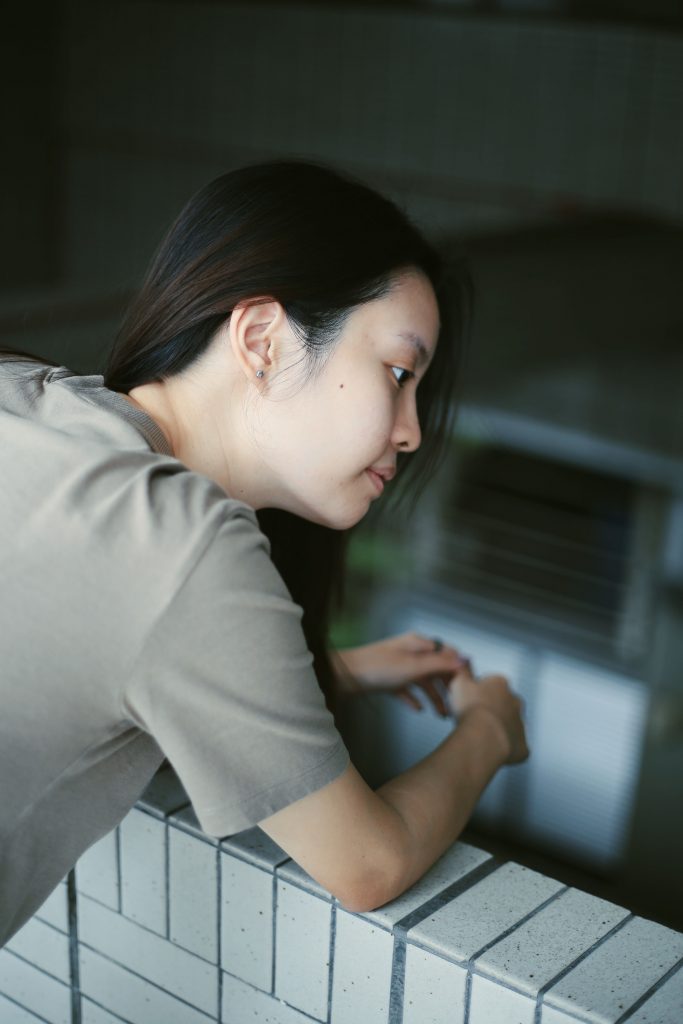
Nowadays when I’m watching a film at home, my dad will peer into my room and ask “is this for work or for fun?” I’m quite thrilled that I get to watch films for a living, it’s the only thing I’ve been doing since I was a kid and I have myopia to prove it.





